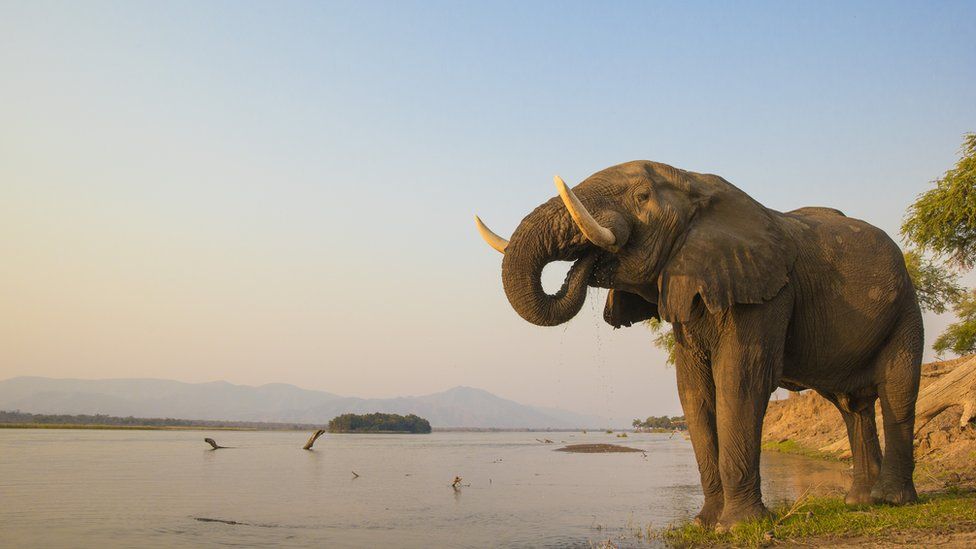Elephants: Why are people talking about ivory and CITES?
- Published
- comments

There's a big debate about ivory at the moment.
Zimbabwe, which has the second highest population of elephants anywhere in the world, wants to sell its stockpile of seized ivory - which is currently illegal.
The government there says that the "one-off" sale would raise £500 million, which would fund it's elephant conservation and wildlife management. However, critics say that selling the ivory would encourage more animal poachers.
The southern African country has threatened to pull out of an organisation called CITES if it's not allowed to sell its ivory stock. But what is CITES and what do they do? Keep reading to find out..
What's happening in Zimbabwe?
International trade in ivory and elephants has been banned since 1989 under CITES, although one-off sales have been allowed before - in 1999 and 2008 - despite much opposition.
Zimbabwe hosted an Elephant Summit earlier this week, with representatives from 16 African countries attending, where it looked to gain international support for the sale.
Zimbabwe says it has 130 tonnes of ivory, kept in a warehouse near the centre of the country's capital, Harare.
The country says that it, along with its neighbours in southern Africa, have seen their elephant herds thrive in recent years, are they're now home to about 70 percent of the continent's elephants.
Did you know?
Did you know elephants can be right or left-tusked, just like we can be right or left-handed?
You can usually tell which is their preferred tusk as it will be more worn down than the other one due to being used more.
Zimbabwe says that it has 100,000 elephants - nearly double the number that conservationists say the country's parks can support, and that the population has grown to a "dangerous" size.
However the picture looks different in the rest of Africa, where poaching and habitat loss have seen numbers declining.
Countries in southern Africa argue the ban prevents them even from supporting each other's conservation efforts.
However, fifty anti-ivory trade organisations issued a statement warning that opening the ivory market would devastate the African herd, which in some regions is near extinction.
What is CITES?
CITES stands for the Convention on International Trade in Endangered Species of Wild Fauna and Flora.
It's a voluntary international agreement between governments - including the UK's - to regulate or ban international trade in species under threat.
There are currently 184 members from around the world and CITES monitors more than 38,000 different species - including roughly 6,000 species of animals and 33,000 species of plants.
What does CITES do?
CITES was set up nearly fifty years ago and its aim is to make sure that the international trade in wild animals and plants does not affect the survival of the species.
Representatives of CITES nations meet every three years at a Conference to review progress and if necessary to change the lists of protected species.
They try and control the number of endangered animals and plants that are killed legally or illegally for money.
The next big conference is due to take place in November 2022 in the Central American country of Panama.
What's happening in the UK?
Here are 11 things you never knew about elephants
Here in the UK the government is, separately, bringing in a new law from next month - called the Ivory Act - which will make the purchase and sale of elephant tusks punishable by fines of up to £250,000 or up to five years in prison.
However, there has been some criticism that the new law doesn't go far enough, as the trade of other parts of the animal will still be allowed to continue.
- Published12 August 2018
- Published23 May 2018
- Published5 October 2016
